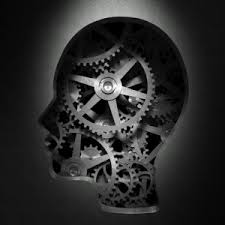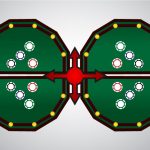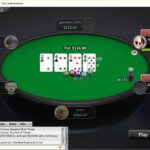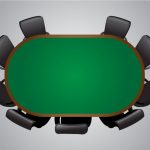Building on Last Week
In last week’s edition of this column, we looked at the basics of thinking ahead in poker and a simple trick you can do to get a ton of effectiveness out of a very small amount of planning ahead.
On the topic of planning ahead, you can plan ahead for your entire sessions instead of just thinking of it on the micro level of thinking ahead on individual actions. We’re going to look into some tricks that you can use to make this happen this week. As always, we’re looking to get the most effectiveness from the smallest amount of effort possible.
The Macro Level
First we’re going to look at some things that you can do on the macro level. What we mean by this is things you can do on a “big picture” level that will boost your overall effectiveness at the tables in the general sense.
Trick #1: The Five Minute Window
It’s hard to get people into meditation who have a certain perspective. People who don’t understand the biology behind how it works and think it’s some new age crap will really jerk away from it, but here we’re going to teach you something useful in all aspects of life with what I call the Five Minute Window.
Here’s what you do. Before your sessions, you go somewhere that you can be alone (even sitting on the toilet is fine). Set a timer for five minutes, and spend that time doing absolutely nothing but sitting comfortably and taking long, slow, deep breaths. There’s no right or wrong way to do it, but what you want to do is focus completely on your breathing without getting caught up on anything else.
This works because it primes your brain to let go of a lot of mental clutter and distractions which in turn allows you to focus on poker at a much higher level. Taking a 55-minute session that includes the Five Minute Window will always be worth more (both in profits and long-term learning) than playing a 60-minute session instead.
Trick #2: Arranging Your Playing Space
Your thinking is drastically affected by your environment. If you play at a messy desk area with tons of sticky notes and crap laying everywhere, then it’s going to put a lot of extra stress on you mentally. This has been proven over and over again, so I’m not going to bother linking to a bunch of studies and building a super-strong case.
Instead, just spend 10 minutes cleaning up your crap. Even if your desktop is a mess, clean that up too. You don’t want a messy playing area because it causes you to drain willpower at a higher rate than you would otherwise. In short, cleaning up your crap will make you play better for longer with less mental fatigue.
Trick #3: Set a Stop-Loss
If you play cash games, then I don’t care who you are, what game you play, what stakes you play or how long you’ve been playing: You should always have a stop-loss.
You’ll always play worse after you’ve lost a few buy-ins no matter what. It’s just how it is, and there’s nothing you can do about it no matter how hard you try. The trick is to remove those sessions from your life where you are at your worse. In today’s games, you need every edge you can get, and this is a great example of finding an edge by letting go of a disadvantage that you’d be giving up to your opponents.
The Micro Level
While the first three tricks above were more along the lines of helping you to have better results overall, the next tricks are more about focusing on specific problems that some players have. These won’t apply to everyone in the same way, but they can be beneficial to work with for most players most of the time.
Trick #4: Count to Five
I’ve known a lot of players who get into an auto-pilot mode of thinking that doesn’t really lead them to putting in enough conscious thought when they’re at the tables. The solution that I’ve suggested for this is that once it’s your turn to act on a table, count to three before deciding what to do.
The point here is that it will give your mind a moment to stop instead of just acting, and that moment that happens while you count can help you to stay off of auto-pilot in the first place.
Trick #5: Cut Down Your HUD
I had a column in my Back to Basics series (link to part 5) where I discussed players who get way too into their HUD layouts. I go into the whole process of cutting down your HUD and how to use basic stats to make fairly complex reads. I see a lot of players do this today, and it’s worth checking out even though it was written almost a year ago.
Trick #6: Troubleshooting Your Study
This isn’t so much about playing your sessions, but when it comes time to study, here’s something I want you to look at. Go through and filter for every hand where you called a raise on the turn. Add up the bets you lost on the turn and river in the hands you lost after that and compare it to your total winnings in the hands you won. What you’ll most likely find is a leak that an overwhelming number of low stakes players have.
Simple Changes for Big Results
I’m all about putting forth the minimum amount of effort for the maximum amount of gain. I’ve chosen the six tricks in this week’s edition because they are so incredibly important. Add them to your game, and you’ll find big changes without having to put forth all that much effort overall.
Submit your review | |








